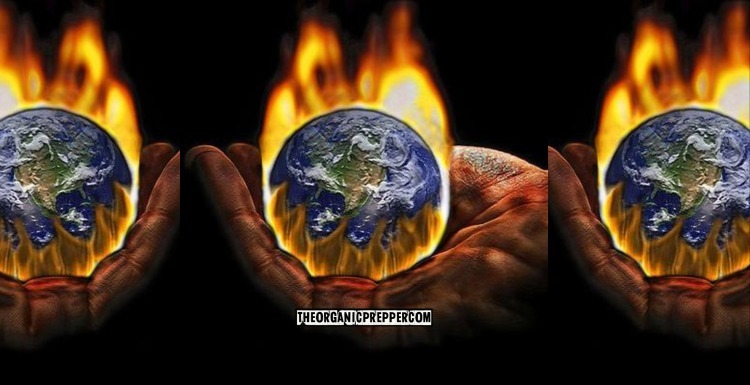by Daisy Luther, The Organic Prepper:

The developed world, accustomed to safety, convenience, and comfort, is facing a slow-burning SHTF called Thirdworldization by some. Each time humankind faces some tribulation like the one we’re currently going through, it feels like the world is coming to an end. In many senses, the threat is present: a pandemic is a serious SHTF. It IS the end for many.
But the real SHTF isn’t just the pandemic – it’s the effects on the system that Selco warned us about from the very beginning.
TRUTH LIVES on at https://sgtreport.tv/
The ramifications of such events as Covid-19 and government responses are real and long-lasting. Despite theories surrounding COVID-19 (conspiratorial or not), the fact is real damage has happened to the economy and our lifestyle. To those who say we’ve been through a lot since March 2020, I’d argue we haven’t yet seen the full range of consequences. Objectively, we’re not even out of the pandemic.
The question remains: how and when will this Thirdworldization play out?
I concede this doom-and-gloom talk is growing old and burning out even among preppers. But we’re not talking probabilities: it’s already happening.
We must face reality and accept things are not going back to normal any time soon (if ever). It may indeed get worse before it starts getting better again. It’s past time to stop waiting for Black Swans and pay attention to subtle changes already underway.
It’s been a different SHTF for each country, each business, each family, and each person. On a more broad scale, there’s no way to tell for sure whether it will be a storm, “the” perfect storm,” or something in between. These things unfold slowly – the proverbial frog in the pot (until they catch up). As always, multiple interests and powerful forces are acting simultaneously in different directions, which means lots of possible ramifications.
Global crises affect countries in different intensities and manners
Global-scale SHTF hit some places faster and worse than others. Good and bad are never evenly distributed. The capacity of a nation and its population to withstand and overcome disaster depend on many factors. These include the size, strength, and resiliency of the economy. Also, how solid, functional, and credible the institutions are, the social fabric’s stability, etc.
Those and others dictate whether a country will suffer more or less the effects of a global economic setback. But as it’s happening with the pandemic, no one will come out unscathed: some will feel the impact of migration, others (eventually) by war. At the same time, some will see internal conflicts, currency devaluation, martial law, coups, political instability, social eruptions, and more. Much of that is already taking place in various places around the globe.
It’s impossible to get the timing right or know what will happen, but trends can be forecast
These and other events are hitting differently even inside the same country: some regions are “normal,” while others suffer badly. That’s one of the factors driving the migrational movements within the U.S. Many people are moving to different states. People go wherever they receive better treatment.
You should already have a grip on your local zeitgeist. If you don’t, maybe it’s a good idea to start paying attention to the social, political, economic, and institutional moods in your piece of land. That will help tell which way things go when SHTF. You don’t want to get caught on the wrong side of the fence if it happens.
And that’s how we get to Thirdworldization
Thirdworldization is a slow-burning SHTF for those living in developed countries, used to comfort, convenience, and security.
Thirdworldization is the gradual and inevitable impoverishment of a rich country. It is the visible effect of major crises hitting square on the population, institutions, corporations, and even the government. It spreads insidiously in every aspect of daily life and our small circles.
Less growth means less wealth, less money circulating for everyone to take care of necessities and obligations. This shrinking economy brings all sorts of declines that affect services, infrastructure, the supply chain, institutions, and changing the population’s lives and routines.
The economy has a direct impact on the structure and foundation of social order. As an engineer, I tend to analyze structures and foundations by force of my work before assessing other factors. If those are in bad shape, the rest can’t be good. That holds true for a family, a company, a city, or a country.
Read More @ TheOrganicPrepper.ca




